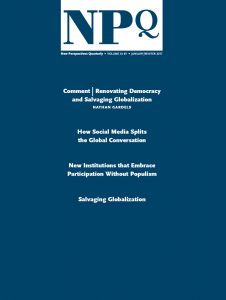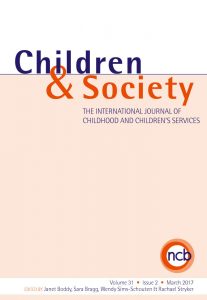Trans Children & Pathologisation in the UK
What happens when a society, backed by powerful institutions, media and majority culture designates a minority population as inherently disordered? When that categorisation and stigma is weaponised to legitimise abuse and discrimination? A new study highlights the legacy of one example of such pathologisation, focusing on transgender children in the UK. Introduction Across the globe, growing numbers of transgender (trans) children are being supported to live authentically in childhood. Global healthcare consensus now recognises trans identities, including in childhood, as...



















1475-682X/asset/akdkey.jpg?v=1&s=eef6c6a27a6d15977bc8f9cc0c7bc7fbe54a32de)
